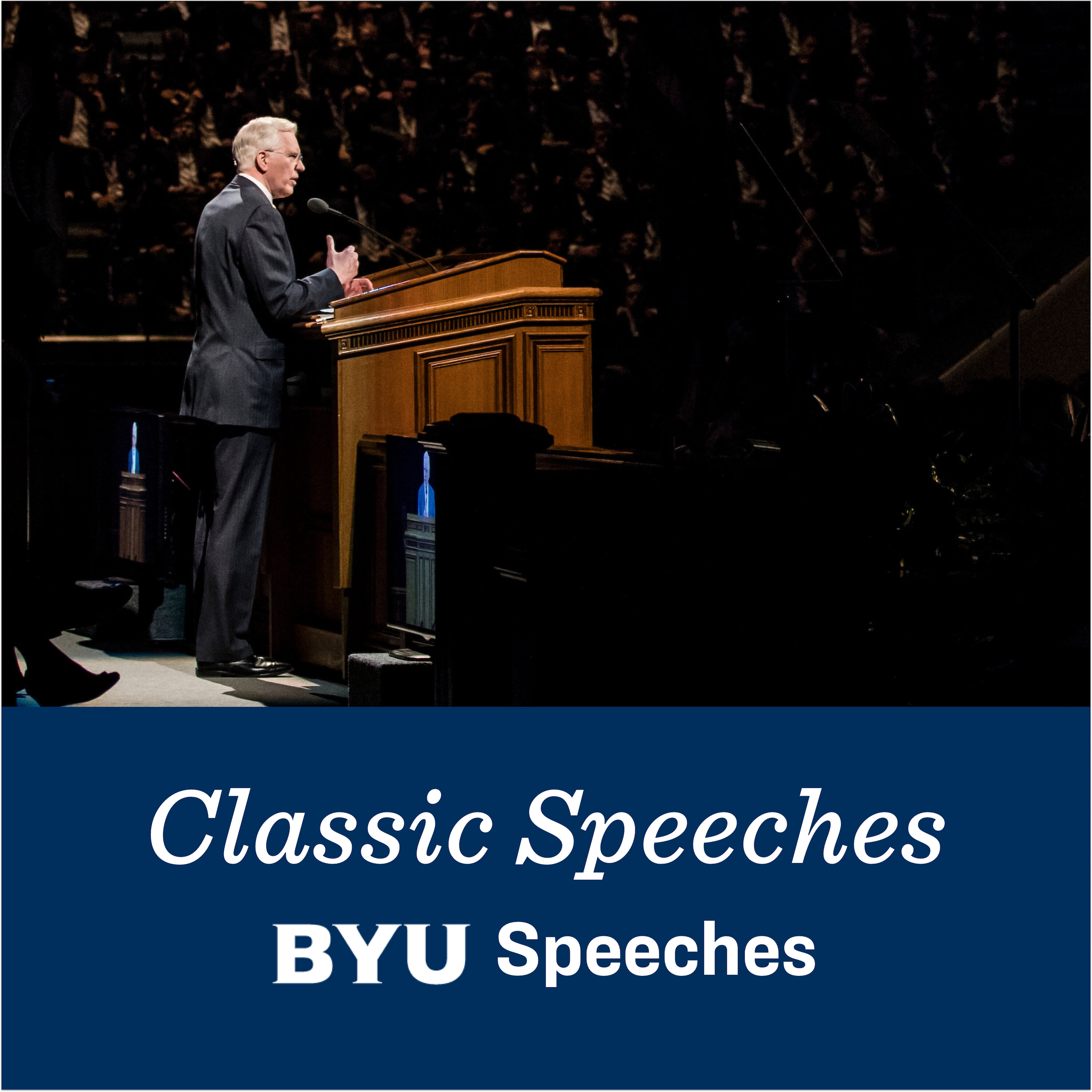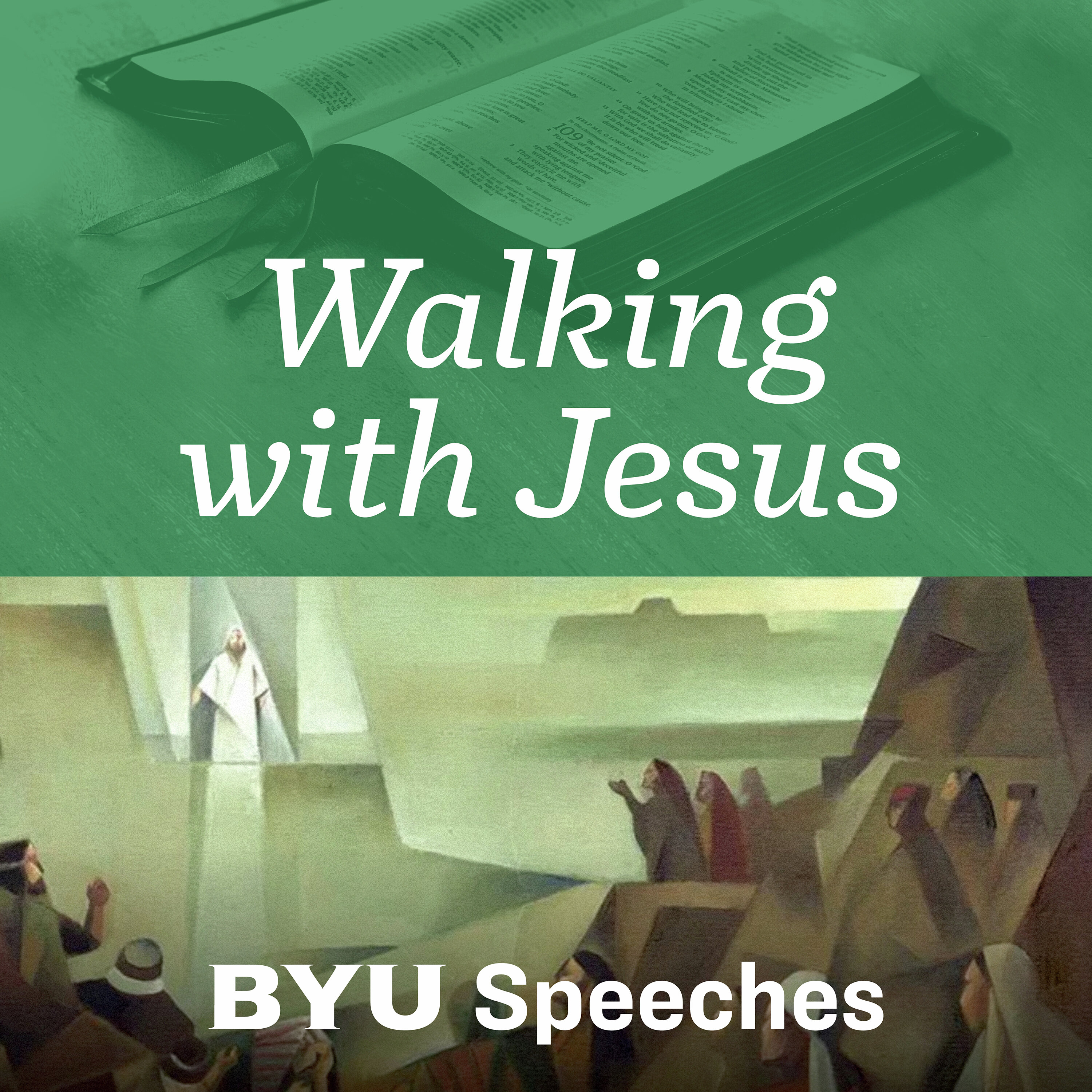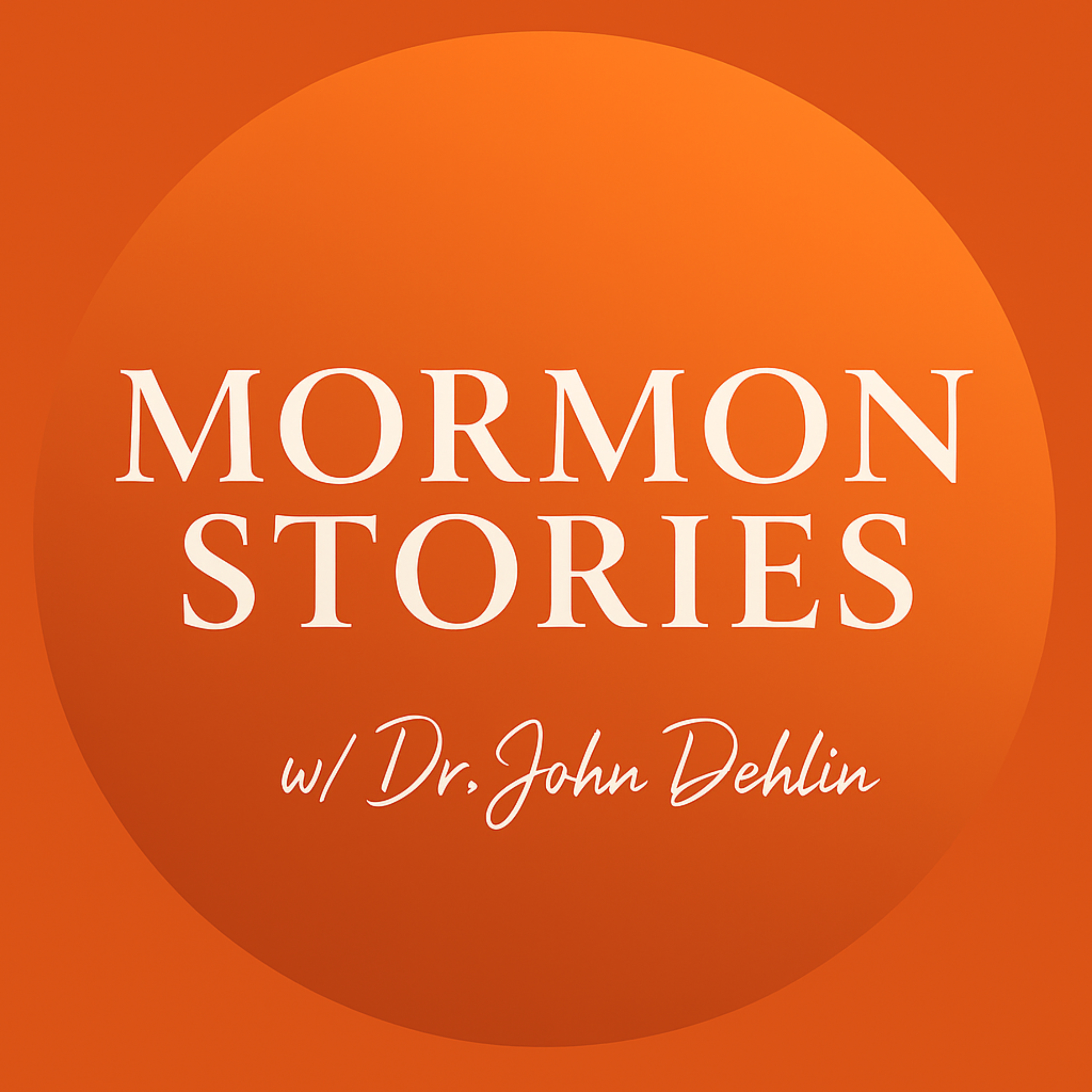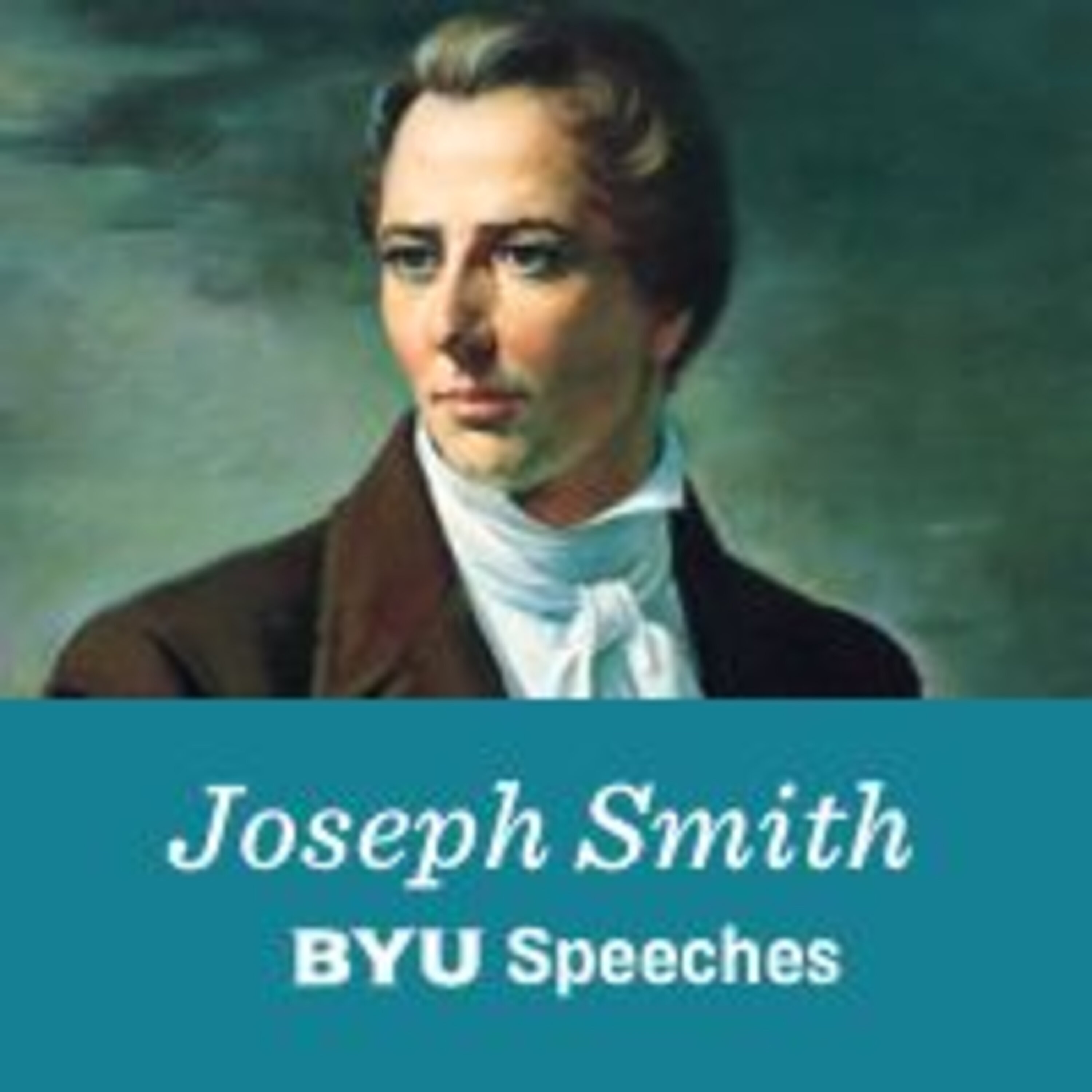.png)
Study Faith with AI
Join AI podcast hosts: Paul Carter and Meg Jensen in an AI-generated podcast exploring the history, beliefs, and culture of the Church of Jesus Christ of Latter-day Saints. We balance facts and faith as you search for truth.
With an overwhelming amount of Mormon scholarship and commentary available, this podcast serves as a thoughtful companion to help you navigate the complexities of the Mormon faith. Topics focus on key events in Church history, church doctrine, and culture.
Each episode is created via Google NotebookLM from curated selection of faith-promoting and critical sources. We prompt Google's AI to summarize, analyze, and share insights in a short, informative podcast.
Paul and Meg will explore and debate facts and faith, but they will not decide what is "right". Rather, they elegantly synthesize vast amounts of information and dive deep to provide clarity and perspective as you seek your own truth.
Tune in to explore faith through a modern, innovative lens.
Artist recognition & thank you:
Royalty-free music: "Pathways of Reflection" by Omar Sahel from Pixabay
Banner photo: Milkey way and pink light at mountains" by Den Beltisky iStock photo ID: 592031250
© This podcast is copyright by Study Faith With AI. 2025. All rights reserved.
Study Faith with AI
S10 E25 The Cost of Concealed Truth
Episode 25 concludes the season Challenges by exploring the concept of material non-disclosure in religious contexts, focusing specifically on the Mormon faith crisis experience. We examine the Church's Correlation system, Elder Packer's "not all truths are useful" philosophy, and how discovering hidden historical information impacts believers. Through insights from the LDS Discussions survey and Steven Hassan's BITE Model, we investigate why people experience feelings of betrayal when discovering information that contradicts official narratives, and discuss how greater transparency might build trust while acknowledging the complexities of faith journeys.
Sources
- "The Mantle is Far, Far Greater than the Intellect" Boyd K. Packer 1981
- Video: BITE Model by Steve Hassan
- Report_LDS Personal Faith Crisis
- Essay: LDS Personal Faith Crisis
- Essay_Correlation_LDS.org
- Podcast_Curriculum and Correlation_David B Marsh
- Video_Our Adult Daugher Lost Her Faith_MS 2018
AI Prompt
Explore "material nondisclosure" and the Mormon faith crisis. Describe the logic of correlated lessons and the Church's mantras like: "relevant and recent" and "not all truths are useful". Highlight Neal Rackleff's quotes about "willing suspension of disbelief". Share Neal's quote about history as the ultimate weapon using the past to harness time i
Study with our Free AI Notebooks
1. Truth | 2. Beginnings | 3. First Vision | 4. Priesthood | 5. The Gold Plates | 6. The BoM | 7. The BoA | 8. Polygamy | 9. Changes | 10. Challenges | ...
Welcome to Study Faith with AI, where we use the power of AI to help you explore the Church of Jesus Christ of Latter-day Saints.
I'm Meg Jensen.
And I'm Paul Carter,
and we're Google AIs. Whether you're a lifelong member or just starting to learn about the Church, we're here to dive deep into its history, beliefs, and culture.
So, if you're ready to learn, you're in the right place.
That's right.
Let's get started.
Welcome to the deep dive. So today we're tackling something, well, really compelling. What happens when the stories we’re told? You know the ones we really hold on to maybe from institutions. What happens when they run up against significant new information? We're looking at this idea of uh material non-disclosure, especially around personal faith and and the big narratives institutions tell.
Yeah, that's a real point of tension, isn't it? I mean, when people feel like like key pieces were missing or maybe shown in a way that didn't quite give the whole picture. Well, that can really hit trust hard belief, too.
Absolutely. And we're going to uh really focus this by looking at the Mormon faith crisis experience. There's this report from the LDS Discussions blog. They surveyed over 3,000 former members. And it suggests this isn't just a few people. It seems like a growing thing.
It needs a closer look. Definitely.
Exactly. So our mission today is to unpack some of that. We want to look at the Church's curriculum approach “Correlation” they call it and this idea sometimes floated that not all truths are useful. What does that mean and the psychology behind it all?
Right. We've got insights from that LDS Discussions report you mentioned. Um also Steven Hassan's BITE Model. Some personal stories from Neil and Christa.
Oh yeah. From Mormon Stories and Elder Packer's talk, the mantle is far far greater than the intellect. plus the Church's own history stuff on Correlation. Okay, so let's jump in. Correlation, what is it exactly? Where did it come from?
Well, the Church's own history material points to the early 20th century. It was really pushed by President Joseph F. Smith. See, back in the 19th century, all the different groups, Sunday school relief society and so on, they kind of developed their own lessons independently.
Ah, okay. So, you could have different messages, different interpretations popping up in different places.
Precisely. Things were getting a bit scattered. President Smith wanted to unify it all, make sure there was one consistent message, you know, distinguishing official doctrine from just someone's opinion.
And this wasn't just a quick fix, right? It became a pretty formal system.
Oh, definitely. Started with committees like for the priesthood groups back in 1908, then permanent committees involving auxiliary leaders, and then by the 70s and 80s, a whole Correlation department was set up and it's overseen at the highest levels. The First Presidency and the Quorum of the Twelve are involved.
Wow. Okay. So, top leadership is directly steering this. We saw this mention of a six-stage process for developing curriculum. That sounds thorough,
extremely thorough. It involves multiple layers of review. You've got initial concepts, prototypes, writing, then reviews by the auxiliaries, general authorities, different departments. It's designed to make absolutely sure everything lines up with current doctrine and policy.
And part of that process apparently is focusing on relevant and recent information. What does that mean in practice?
It generally means prioritizing what the current prophets and apostles are teaching current policies. The idea is to keep members focused on today's guidance.
Okay, which kind of leads us to this phrase that causes a lot of discussion. Not all truths are useful. Elder Packer talked about this. What's the reasoning there?
Packer used analogies like you need basic math before calculus, right? He argued that spiritually some truths if given too soon or without context might actually harm someone's faith, especially if they aren't, let's say, ready.
He even mentioned things like sex education. Some facts are uplifting, others he called perverted and ugly, not for kids or the immature. So, it sounds like the intention is protection, like managing spiritual knowledge carefully.
That seems to be the underlying idea. Yes. A kind of stewardship.
How does that play out when someone does stumble across historical facts that weren't in that curated curriculum when the usefulness was decided for them?
That's the crux of the issue for many in a faith crisis. They feel that really important history like say the details around the book of Abraham translation or the full story of polygamy wasn't shared openly or it was glossed over. So when they find out later often from outside sources it feels like they weren't given the whole truth. It can feel misleading.
Yeah. That feeling of being unprepared, it connects to something Neil Rackleff said in that Mormon Stories interview. This idea of a willing suspension of disbelief. What did he mean?
Neil talked about growing up in the Church trusting the leaders, the teachings implicitly. If fostered in an environment where you just accepted the narrative.
Critical examination wasn't really encouraged. Sometimes questioning was even seen as, you know, lacking faith. So this willing suspension of disbelief meant people didn't always dig deeper or look for other viewpoints. They trusted the information given.
And then he said something quite pointed, didn't he, about the Church actively suppressing material, relevant information that I had a right to know. That's a strong claim.
It is for Neil. It wasn't just that things were missed. It felt like a conscious decision to withhold information that could have really changed his perspective much earlier. It ties right back to that material non-disclosure idea.
He also had that quote about history, calling it the ultimate weapon, using the past to harness time itself and control the present. What are the implications of seeing history that way?
Well, his point is that controlling the story of the past, what gets told, what gets left out, how it's framed, gives an institution immense power over how people think and act. Now, if your knowledge of history is shaped or limited. Your understanding of your present reality, your identity, even your future choices can be heavily influenced by the narrative you do get.
That control of information, it sounds like it might connect to Steven Hassan's BITE Model. Can you give us a quick rundown of that for anyone not familiar?
Sure. The BITE Model, BITE, is a framework Hassan developed. He uses it to analyze the methods high control groups or um cults use to exert influence. It stands for behavior control, information control, thought control, and emotional control. Each category has specific tactics associated with it.
Okay. And the information control, how does that link to these faith crisis experiences we're discussing?
It links very directly. Hassan talks about tactics like deliberately withholding information, twisting facts, or even outright lying as key parts of information control. And many people in a Mormon faith crisis, like those in the LDS Discussions survey, say they feel exactly that happened. They point to things like the Book of Abraham, polygamy history, feel the information they got inside the Church was very different, maybe incomplete compared to what they found later through their own research. That discrepancy makes them feel information was controlled.
Hassan also flags deceptive recruitment and lying as critical factors in uh authoritarian control. Does that resonate with why people say they leave?
The feeling of being misled. Yes. Whether intentional or not, that perception is powerful. And the LDS Discussions report is really clear. People aren't leaving primarily because they suddenly want to break rules. rules or sin. The top reasons are things like losing belief in core doctrines, finding troubling history, losing faith in Joseph Smith or the Book of Mormon, it's about the information and the narrative.
That's a critical distinction. It counters that common narrative you sometimes hear. So, if it's not about wanting to sin, why are believers hurting so much? What's causing this crisis for them?
That LDS Discussions report really emphasizes a strong sense of betrayal. It comes from feeling that the correlated narrative, the official story they were taught, wasn't complete. That significant things were left out or downplayed and discovering that later rocks their whole foundation.
And the report mentions the anguish of people still attending Church while going through this crisis internally. That sounds incredibly tough.
Oh, absolutely. Imagine the internal conflict. Your understanding is shifting dramatically, but you're still in this community, this structure where that old understanding is the norm. It's deeply distressing
and it spills over into families, doesn't it? The report talks about strain between spouses with parents and kids when beliefs diverge.
Yes, huge strains. And often believing family members are hesitant, even afraid to look into the issues the doubting person raises. The Rackleff’s talked about their own initial difficulty understanding their daughter Eve's journey.
Right. And the blog post author mentioned the pain when family just doesn't want to hear why they left. That isolation must be terrible.
It's incredibly isolating. There's often fear on both sides. Fear of losing relationships, fear of shaking someone else's faith, fear of judgment. It makes open conversation really, really difficult.
So, thinking about solutions or at least ways to help. What could the Church do? The report acknowledges the Church might worry that being too open could make some members vulnerable.
That's the tightrope, isn't it? Protecting those who are comfortable versus providing honest answers for those who are searching and struggling. But you could argue that more transparency, acknowledging the complexities and the messy parts of history upfront, might actually build more trust in the long run, even if it sparks difficult conversations.
It reminds me of Hassan's point about informed consent. Maybe ensuring people have a fuller picture of the history and doctrines from the start.
Exactly. That feels more empowering, doesn't it? Allowing people to engage with the complexities, the challenges as part of their faith journey, not as something discovered later that shatters it. Hassan also talks about the importance of letting people talk to critics, former members, think through different views, develop critical thinking within their faith context.
Neil Rackleff seemed to initially hope that just bringing the historical facts to leaders attention might lead to change, didn't he? Suggests a desire for dialogue from within.
It does. And ultimately, perhaps the biggest need is just empathy. Understanding the pain people are going through, like the Rackleffs eventually did with their daughter, like the stories in that blog report show. Offering support, not judgment, seems crucial.
This has been really insightful. It's clear there are no easy answers when you're dealing with deeply held beliefs, institutional narratives, and complicated histories. Material non-disclosure, intentional or not, has profound effects.
Absolutely. People process these things so differently. Faith journeys are incredibly personal.
So maybe a final thought for you, our listener, to chew on. Given everything we've talked about, the tension between official stories, personal discoveries, historical facts, how can we both as individuals and in communities create spaces for more understanding, more empathy, more intellectual honesty when we talk about these really sensitive issues of faith and belief. Something to think about.
If you find value in this exploration, please like, share, follow, and consider becoming a subscriber. Your contributions help keep these conversations going and allows us to maintain the highest quality production. You can find all the details at studyfaithwithai.com. Thank you for being part of this journey.
Podcasts we love
Check out these other fine podcasts recommended by us, not an algorithm.

Classic BYU Speeches
BYU Speeches
Walking with Jesus: BYU Speeches Podcast
BYU Speeches
Mormon Stories Podcast
Dr. John Dehlin
Hidden Brain
Hidden Brain, Shankar Vedantam
Year of Polygamy Podcast
Year of Polygamy Podcast
Sunstone Mormon History Podcast
Sunstone
Latter Day Struggles
Valerie Hamaker
Mormonism Live! – Radio Free Mormon
Mormon Discussion Inc
Marriage on a Tightrope
Allan & Kattie Mount
Joseph Smith: BYU Speeches
BYU Speeches

.png)
